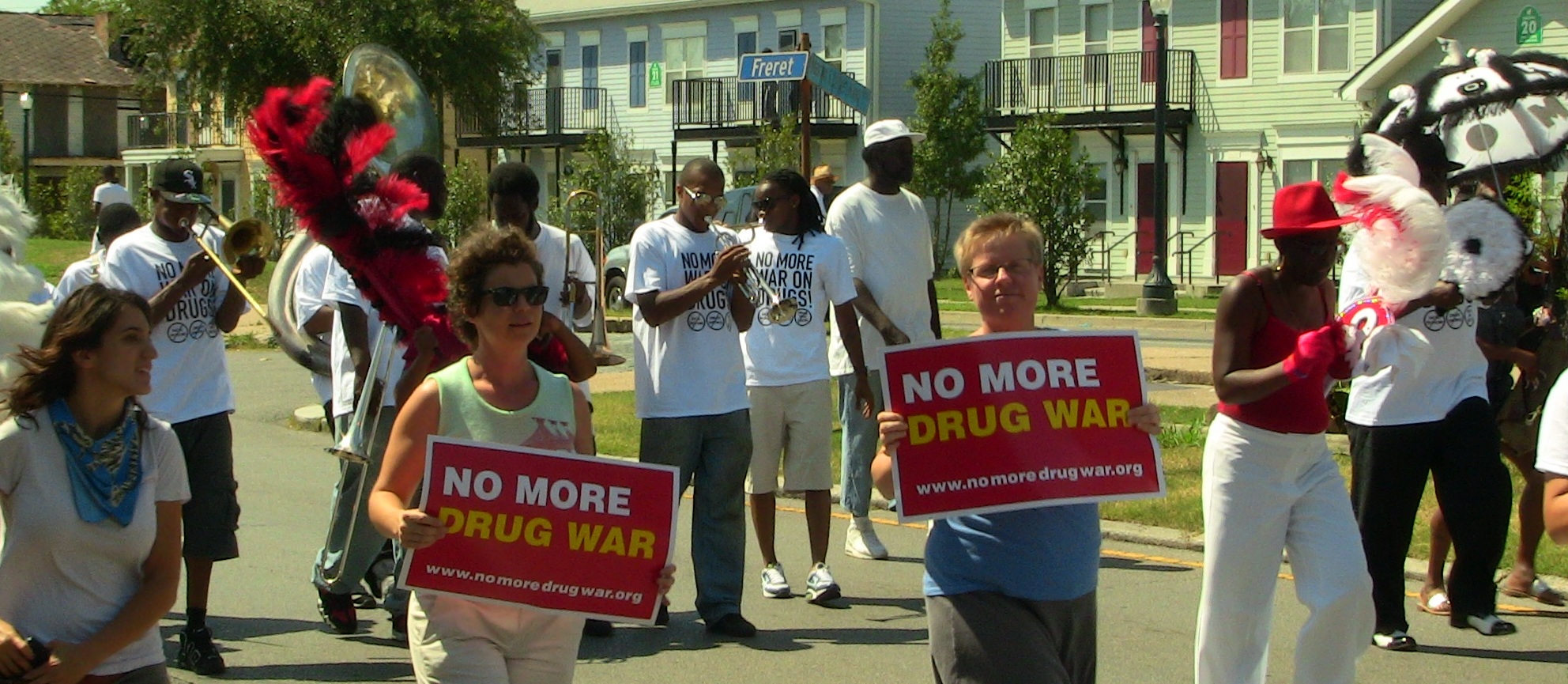
Forty Year War on Drugs Incites New Orleanians to Protest
Advocates call for shift from incarceration to rehabilitation and legalization
NEW ORLEANS, La. – On Friday afternoon, with festive music and diverse protestors, Women with a Vision led a peaceful march against what the organization describes as a trillion dollar “abject failure”—the now forty-year-old war on drugs.
With the support of likeminded organizations in 15 cities across the country, approximately 60 protestors marched through Central City, soaking up 90 degree temperatures. They called for an end to what they allege to be racial profiling, lengthy sentences, and unfair drug policies.
 Those present held differing views on specifics, but the consensus appeared to be for a shift away from incarceration toward either rehabilitation or legalization. Since Louisiana has the world’s highest incarceration rate—one in 55 people, and 30 percent from drug convictions—they believe the money would be better spent elsewhere.
Those present held differing views on specifics, but the consensus appeared to be for a shift away from incarceration toward either rehabilitation or legalization. Since Louisiana has the world’s highest incarceration rate—one in 55 people, and 30 percent from drug convictions—they believe the money would be better spent elsewhere.
Event organizer and director of Women with a Vision, Deon Haywood, said that on the drug war’s 40th anniversary none of us are safer, despite the immense expense.
“It hasn’t curbed the use of illegal drugs, but what it has done is incarcerate many people… We have only two licensed addiction counselors serving three parishes: Orleans, Plaquemines, and St. Bernard. Why can’t that money be put into treatment?” She did not, however, call for outright legalization. (Click below to hear her full interview – seven minutes.)
[audio:http://bit.ly/jIfOO9]Dana Kaplan, director of the Juvenile Justice Project of Louisiana, attended and spoke at the close of the event. She expressed concern that the drug war was tearing communities apart and fostering a “school-to-prison pipeline,” but she noted incremental victories this legislative session. Her hope is that she won’t have to return in another 40 years, and she called on attendees to continue to support the efforts of Women with a Vision.
A few self-described anarchists participated, but attendees who might otherwise be at odds seemed glad to have a variety of political persuasions allying for the occasion.
“You get to see the people coming together. It’s a unity thing,” said Keyondria Mitchell, a supporter who led one of the dancing groups. She said the event’s varied attendees were testament to a changing public perception of the drug war. “That’s what you want, awareness.”
Roger White, a political science professor at Loyola University New Orleans, has no problem with a war on drugs and counters that the active prevention of marijuana availability, for example, is a “social good.”
“People who are stoned cannot act well in the capacity of family member, neighbor, or citizen.”
In terms of tactics, though, he favors marijuana decriminalization – with fines and education – as the most fitting approach to what sees as a social problem.
For an insightful debate between Roger White and Walter Block, of the Loyola economics department, over the legal standing of drugs, watch the video below. The Loyola Economics Club hosted the event late in 2010.
Fergus Hodgson is the capitol bureau reporter with the Pelican Institute for Public Policy and editor of The Pelican Post. He can be contacted at fhodgson@pelicanpolicy.org, and one can follow him on twitter.
.





